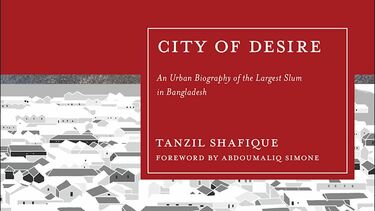In this major open access contribution to Global South urban studies, Tanzil Shafique offers a new way of knowing and engaging with the most common urban environment in the Global South ā informal settlements, or āslumsā.
Informal settlements currently house more than a billion people and will house three billion people by 2050. Yet they remain marginalised in urban theory and practice, and most projects to improve them fail due to a lack of knowledge of the ongoing processes that build them.
āCity of Desire - An Urban Biography of the Largest Slum in Bangladeshā is Dr Shafiqueās detailed case study of Karail, the largest informal settlement in Bangladesh. It combines local stories with theoretical insight into how the desires of Karailās inhabitants drive everyday urban change. The book also recommends ways in which policymakers could upgrade the management of similar existing and future settlements.
This is not a typical academic book (hopefully). All jargons are shunned into the endnotes. This is written as 11 short stories, slicing through the everyday life of the settlement. Each slice exposes entanglements and separation, generated and unintentional, moving beyond our convenient disciplinary wordings and worldings. This is a biography just like how life is.. messy, relational yet detached, tangled, troubling, mythical, opaque and translucent in placeā
Dr Tanzil Shafique
School of Architecture and Landscape
What do we know about informal settlements? Very little or nothing from censuses. Nothing from government and international agenciesā household surveys. So we are reliant on relatively few in-depth studies of informal settlements.
This ābiographyā of Korail is a welcome addition to this. It challenges readers to see not only these settlements but also cities differently, āat least enough to imagine alternative futures for themā ā that better serve their needs and concerns within the huge risks brought by climate change.ā
David Satterthwaite
IIED / University College London

